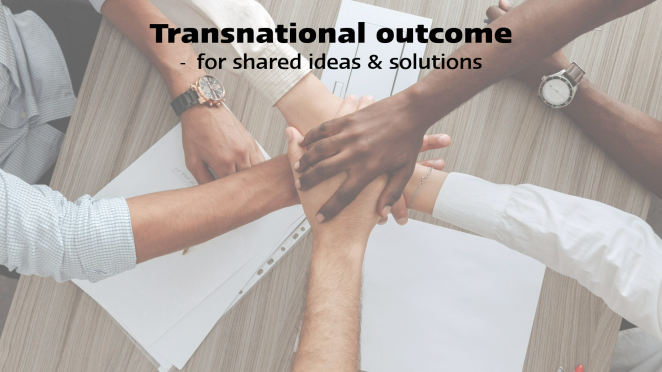Transnational collaboration offers a wealth of benefits by bringing together diverse perspectives and practices. We have regular workshops, meetings and open discussions to learn from each other and become stronger together.

Here are some key insights that we would like to share with you:
✔ Drawing inspiration from different approaches:
Countries have unique ways of integrating local resources into their processes. For example, France excels in embedding culture and cultural heritage into its activities, providing a rich source of inspiration for others.
✔ Understanding political and ideological differences:
National and regional differences in defining roles within collaborations are significant. Some regions uphold the arm's length principle for public authorities, while others allow for more direct involvement. Recognizing and respecting these differences is crucial for effective collaboration.
✔ Enhancing diversity and social capital:
Transnational projects naturally foster greater diversity and build stronger social networks. Exposure to various perspectives leads to innovative and comprehensive solutions, beyond what local approaches alone can achieve.
✔ Overcoming language and cultural barriers:
Language and cultural differences can present challenges. Effective communication requires awareness and efforts to build trust and a sense of security within the team, acknowledging that these barriers exist despite a shared commitment to inclusivity.
The transnational collaboration is to inspire and strengthen the shared European development of sustainable rural and coastal districts. In summary, learning from each other through cross-border collaboration enriches projects with diverse insights and innovative solutions, while also demanding careful navigation of political, ideological, and cultural differences.
